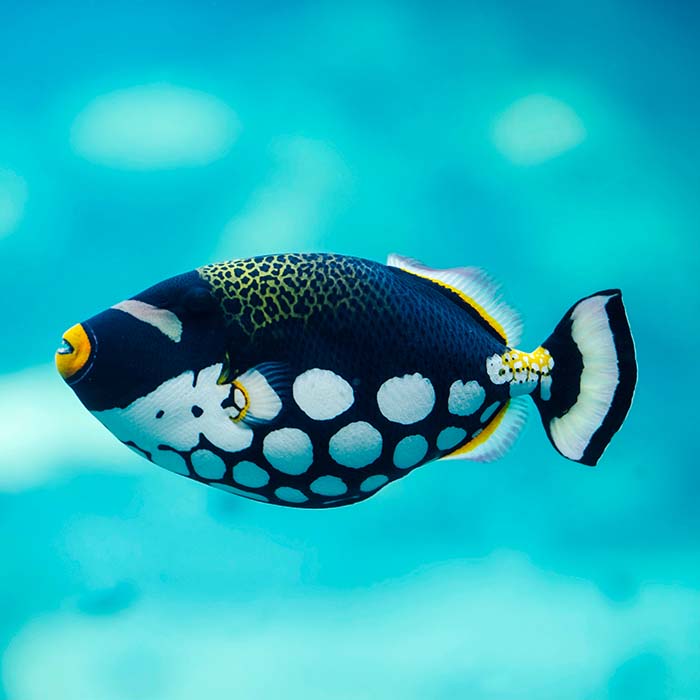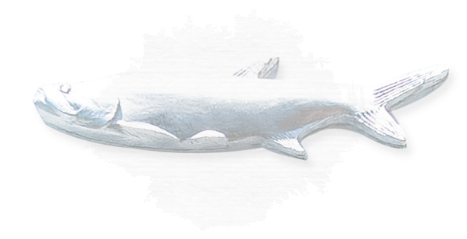Surgeonfish
Surgeonfish are a member of the Acanthuridae family, as are tangs and unicornfish. There are approximately 80 species, all marine fish, and they inhabit the tropical seas, preferring coral reefs. Many members of this species are brightly colored and relatively small, growing to a maximum length of 6 to 16 inches. They like to feed on marine algae with the occasional meat meal. Surgeonfish often travel and feed in schools, using their single row of teeth to graze as they move along the reef. Feeding in schools is a mechanism for overwhelming the highly aggressive damselfish that vigorously defend their “farms” of algae. A surgeonfish’s most distinctive characteristic is the spines on either side of the tail, known as the “scalpel.” The scalpel is razor sharp, and this fish can inflict a deep wound with a quick flick of the tail fin if threatened.

Triggerfish
Triggerfish also inhabit tropical and subtropical oceans throughout the world. There are about 40 species, and while they are quite beautiful to the eye, they are notoriously ill-tempered. Triggerfish have a small but strong-jawed mouth with teeth adapted for crushing shells. The fins of this species are also unique. The ventral and posterior dorsal fins undulate from side to side to provide slow movement. There are also three spines on the dorsal region, the first being the largest. When the triggerfish is relaxed, the spines relax into a groove. But when threatened, it will slide its compressed body between the rocks and use the dorsal spine to anchor within, making it virtually impossible for a predator to remove it. The first spine is locked in place by raising the short second spine. This spine unlocks by depressing the second “trigger” spine, hence the name triggerfish.


